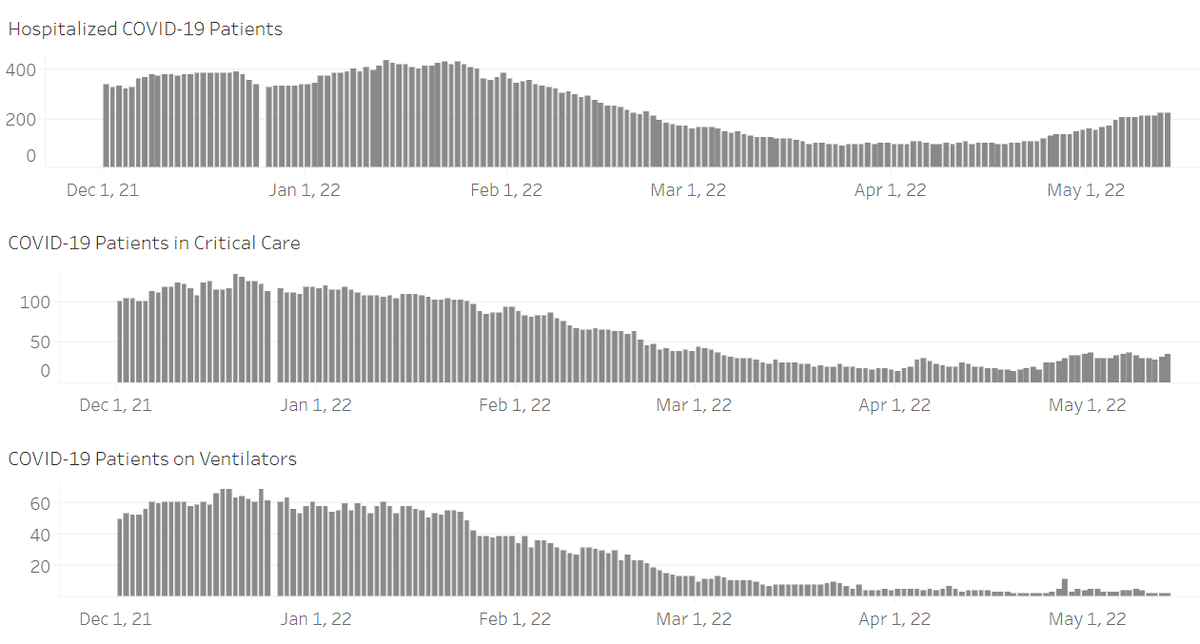
1/In recent days, the @US_FDA has authorized and the @CDCgov (via @CDCDirector) has recommended the @pfizer and @moderna_tx #COVID19 vaccines for
children 6m+.
Though the safety and effectiveness of the vaccines are quite impressive, I've seen a more fundamental question.
children 6m+.
Though the safety and effectiveness of the vaccines are quite impressive, I've seen a more fundamental question.
2/That is, "Why should I vaccinate my child against #COVID at all? After all, it isn't that severe in kids, and my kid already had it. Is #COVID19 in children really a big deal?"
I'd like to make the public health case for pediatric #COVID19 vaccines with @CDCgov data.
I'd like to make the public health case for pediatric #COVID19 vaccines with @CDCgov data.
3/Let's start with the baseline number of cases among children. Many children have been affected by COVID throughout the pandemic.
All of these slides are from a recent @CDCgov #ACIP meeting and are publicly available here cdc.gov/vaccines/acip/…
All of these slides are from a recent @CDCgov #ACIP meeting and are publicly available here cdc.gov/vaccines/acip/…
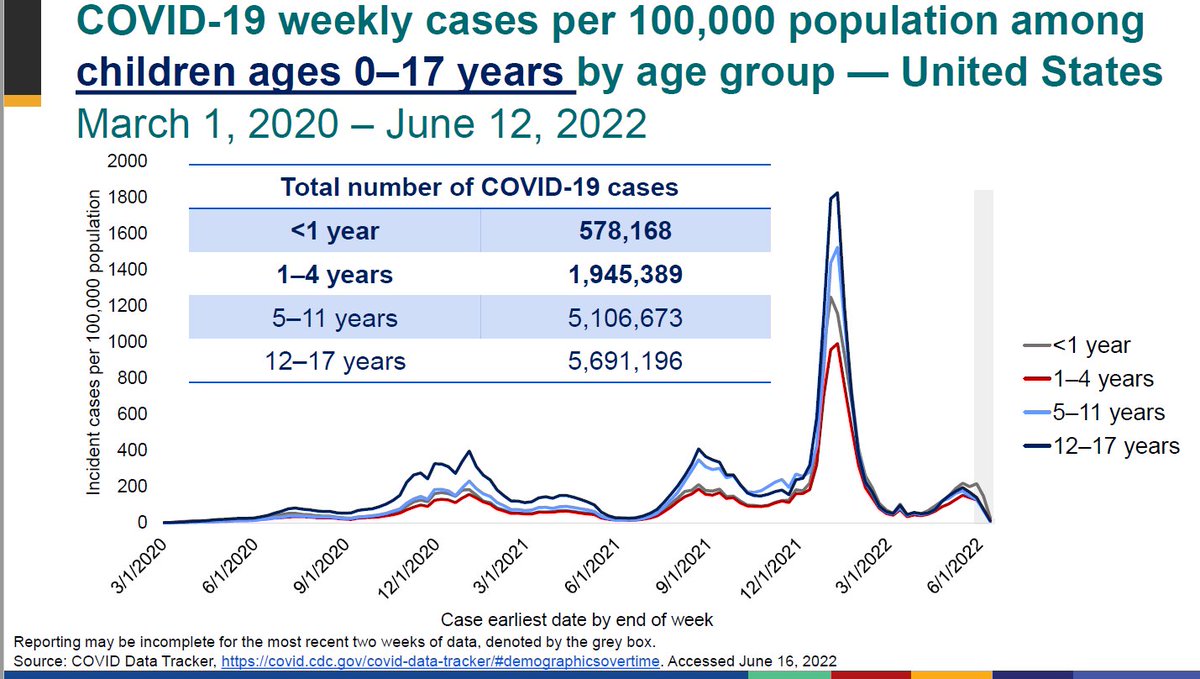
4/The percentage of ED visit where the child was diagnosed with COVID has ranged from ~2%--10+%. This suggests that the cases are not entirely benign. 

5/Hospitalization rates--especially in the group 6m to 5y increased during Omicron, largely because this group was not eligible for vaccines. Note the sharp increase on the cumulative slide. 


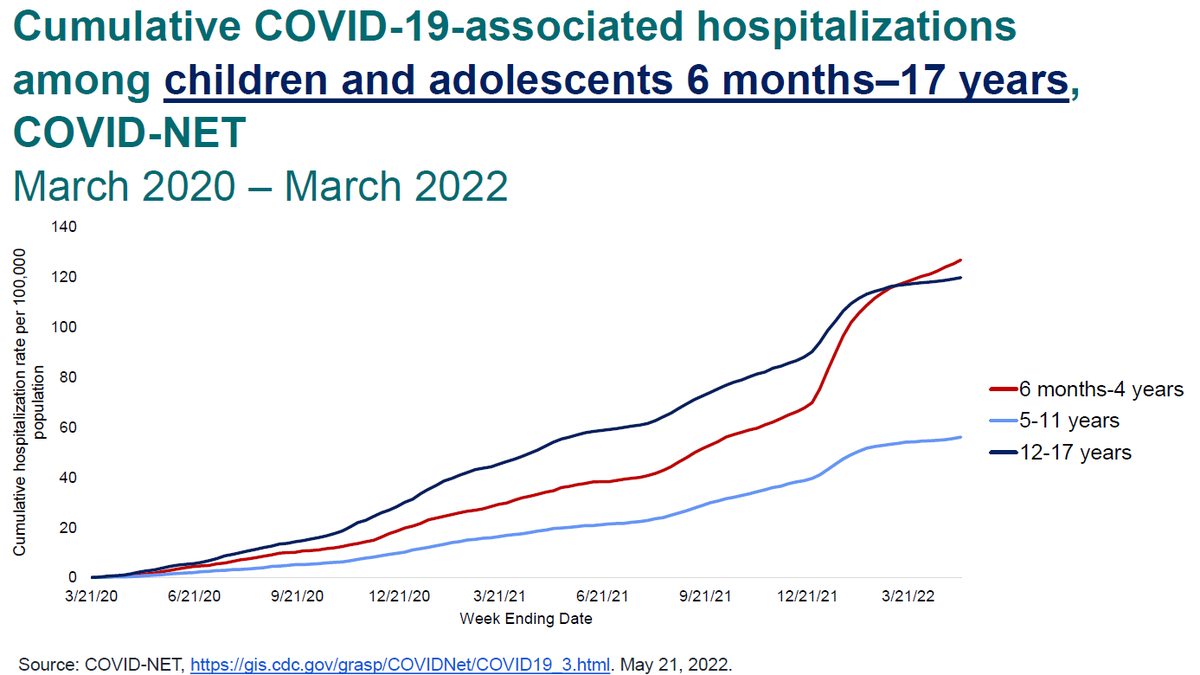
6/As we've seen throughout the pandemic, the rate of #COVID19 hospitalization is MUCH higher among unvaccinated kids 5-17 as compared with those who are vaccinated. 

7/So you might be saying, "Sure, kids can be hospitalized, but *my* child is healthy and so would not need to be hospitalized if he/she got COVID, right?"
Not right. For kids 6m-5y, about HALF of those hospitalized had NO underlying medical conditions.
Not right. For kids 6m-5y, about HALF of those hospitalized had NO underlying medical conditions.

8/So then you might say, "Well how many of those kids were hospitalized *with* COVID, not *for* COVID?"
For 85-90% of hospitalizations in kids 6m-5y, COVID was the primary reason for admission. So kids are being admitted FOR #COVID19.
It can be a serious disease.
For 85-90% of hospitalizations in kids 6m-5y, COVID was the primary reason for admission. So kids are being admitted FOR #COVID19.
It can be a serious disease.

9/Well now you might be saying, "Sure, they were in the hospital, but that's no big deal. I mean, they probably weren't that sick, right?"
Not right. About 1 in 4 kids in this age group were admitted to the pediatric ICU. That is the highest rate among all pediatric groups.
Not right. About 1 in 4 kids in this age group were admitted to the pediatric ICU. That is the highest rate among all pediatric groups.
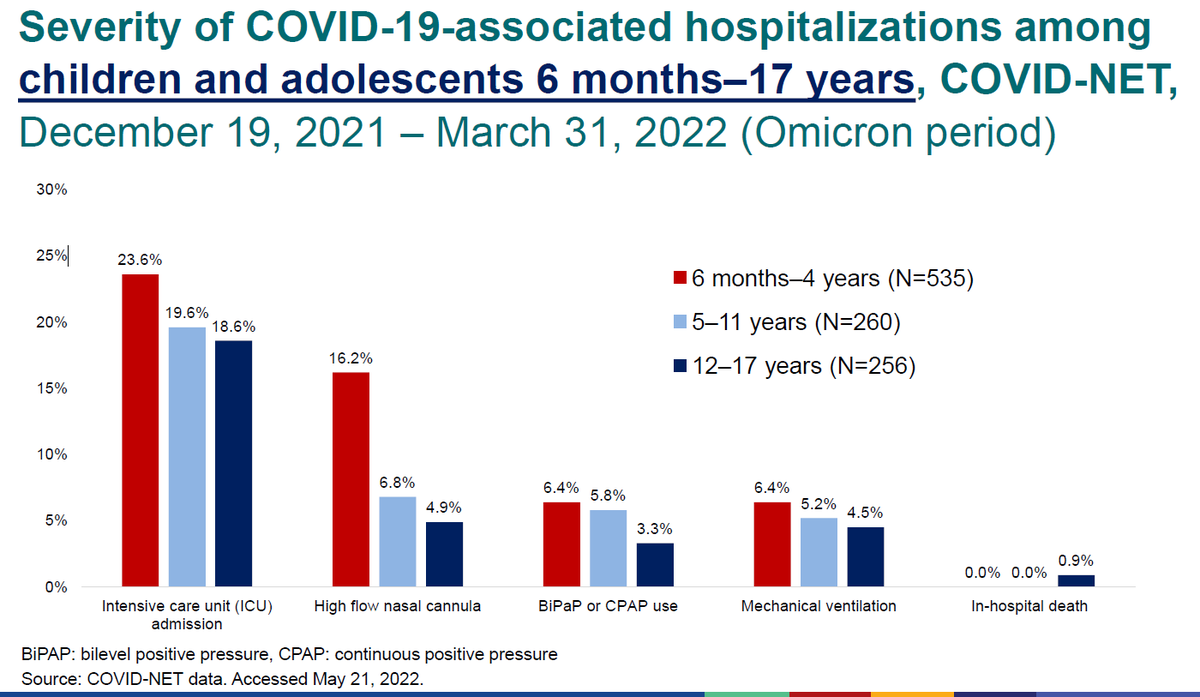
10/But perhaps you think, "Well so what, at least these kids aren't dying, right?"
Not right. There have been 202 #COVID19 deaths among children 6m to 5y. That is 1.7% of ALL deaths in that age group.
Not right. There have been 202 #COVID19 deaths among children 6m to 5y. That is 1.7% of ALL deaths in that age group.

11/Perhaps now you're thinking, "Well, yes, some kids have died, but how does that stack up to other reasons why children die?"
As noted below, #COVID19 is the 4th or 5th leading cause of death among children <19. Now that we have a vaccine, we can knock of off that chart.
As noted below, #COVID19 is the 4th or 5th leading cause of death among children <19. Now that we have a vaccine, we can knock of off that chart.

12/Now perhaps you turn to vaccines and say, "Well none of this means that we should vaccinate our kids, right?"
Wrong. COVID has causes more deaths compared to other diseases we vaccinate kids against in the era before those vaccines became available.
Wrong. COVID has causes more deaths compared to other diseases we vaccinate kids against in the era before those vaccines became available.

13/That chart is key. COVID causes more deaths/year than did all other diseases combined.
If you're not in favor of vaccinating children against COVID, then what is your theory of childhood vaccination? Should we *stop* vaccinating for meningitis, rubella and chickenpox?
If you're not in favor of vaccinating children against COVID, then what is your theory of childhood vaccination? Should we *stop* vaccinating for meningitis, rubella and chickenpox?
14/So maybe now you're saying, "Ok fine, COVID is serious and kids can die. But my kid already had it, along with 70% of other kids in this age group. Why vaccinate them, since they're now protected, right?"
Not exactly right.
Not exactly right.

15/As this slide notes, in the Omicron/post-Omicron era, people are more likely to be re-infected if they are not vaccinated compared with if they have been vaccinated.
That's because of an improved antibody response after vaccination.

That's because of an improved antibody response after vaccination.


16/Here's the bottom line: #COVID19 is a leading cause of death among children 1-4 years of age. And the leading infectious cause of death.
We can now re-write that table because of vaccines.
We can now re-write that table because of vaccines.
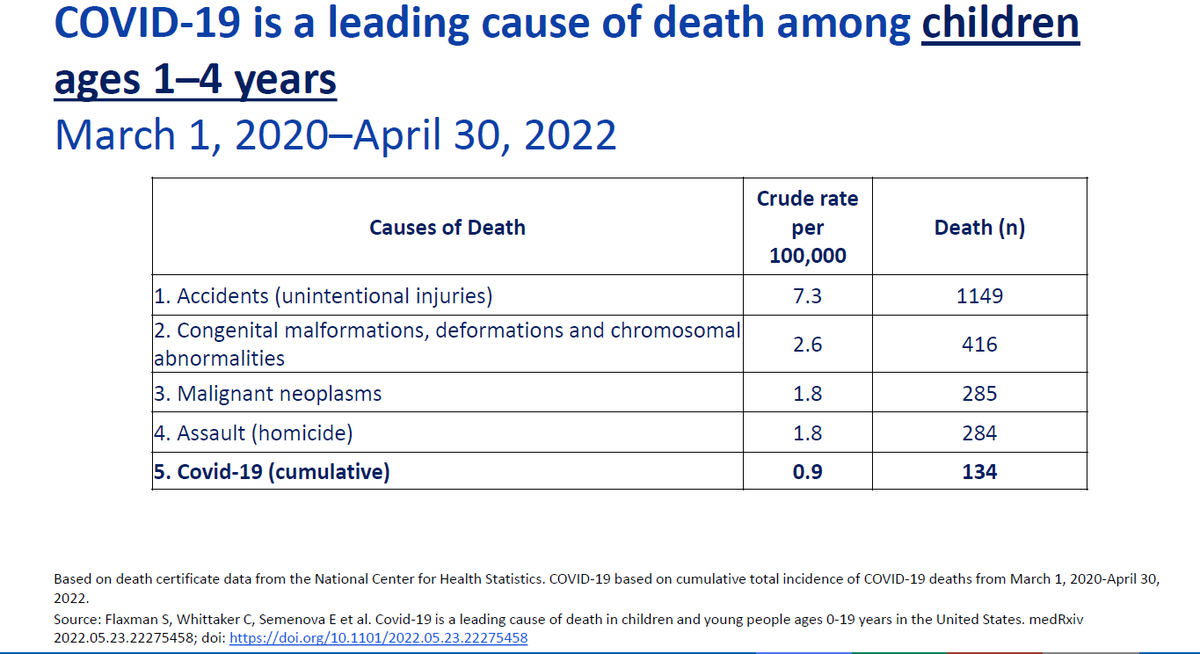
17/Summary: kids can get COVID, they can become sick from it, and they can die from it.
It's important to remember that children are not *supposed* to be in the hospital or die. And that's because of vaccines.
It's important to remember that children are not *supposed* to be in the hospital or die. And that's because of vaccines.
• • •
Missing some Tweet in this thread? You can try to
force a refresh


